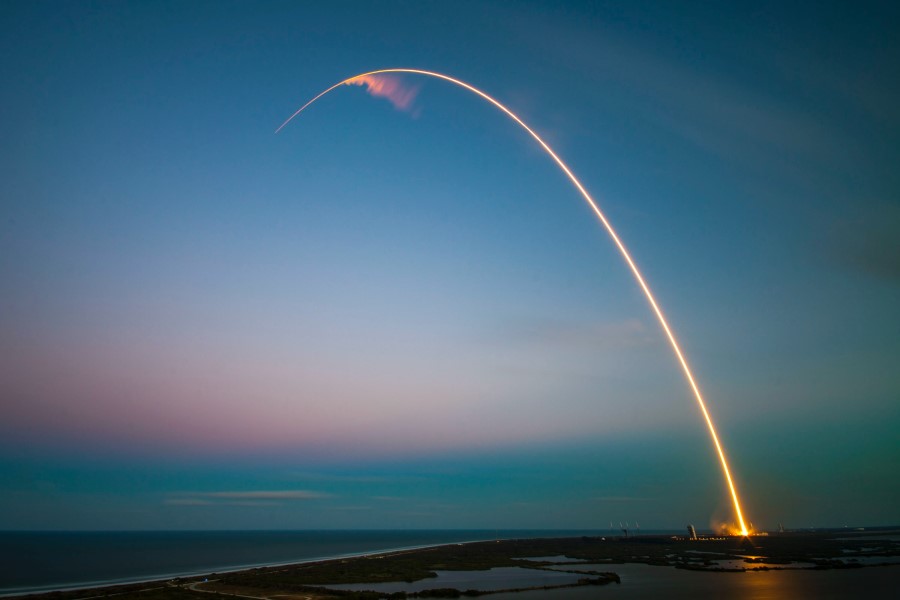Professor Simon Collinson and Julia Goldsworthy discuss the development of a West Midlands Space Cluster and what it might mean for the region and the wider UK economy.
This blog has been produced to provide insight into a City-REDI / WMREDI project looking at the development of a Space Cluster in the West Midlands. The project is led by Dr Chloe Billing and colleagues:
View more work from the Local Space Cluster Development Support Programme
The Space Sector in the UK
In the last decade, space has transformed into one of the UK’s fastest growing and most promising sectors. Trebling in size since 2010, the UK space industry now employs close to 42,000 people across the country and generates an income of nearly £15 billion every year. Space has the potential to drive growth and productivity across many areas of the wider UK economy, as a strategic “enabler of growth in other sectors” (Gov.uk, 2015) and ‘critical national infrastructure’. In response to this, the UK Space Agency ‘Local Space Sector Cluster and Supply Chain Development’ Fund was established to develop the maturity of ‘early-stage’ local space clusters across the UK. This ‘seed corn funding’ focussed on providing evidence and analysis of local ecosystems in order to stimulate local advocacy and investment in Space and increase the uptake of space data and technologies. The 2020 funding was awarded to seven locations – including the West Midlands – to ensure space is a priority for regional economic growth and attract commercial investment from space companies to these areas.
The Development of a West Midlands Space Cluster
The main outcome of this work is a proposed route to increase the maturity of the West Midlands space cluster. Our research has revealed the latent competitive advantages, through new combinations of assets, technologies, skills, knowledge, and expertise that are present in the West Midlands region now, as the building blocks of a future West Midlands space cluster. We now have a deeper understanding of the foundations available for attracting further investment and talent to drive the evolution of this cluster, as part of a wider regional economic growth plan.
 Strengths of the Region
Strengths of the Region
A unique strength for the future development of a West Midlands space cluster is our manufacturing sector (aerospace, automotive, and rail). The West Midlands is a globally significant sector for advanced manufacturing, assembling a critical mass of globally competitive business and high-tech Small Medium Enterprises (SME’s) operating across a range of transport-related sectors, and in particular aerospace, automotive, and rail. Within the region we have strong supply-chains mobilised around key capabilities (such as engines, electromechanical systems etc.). These industries (and in particular aerospace) share close similarities with space and thus demonstrate strong latent space potential. Furthermore, whilst the West Midlands is home to only a handful of downstream space application businesses, the region combines space application capabilities with important end-user sectors for space data/services, creating a powerful value-chain ecosystem for innovation, business growth, and end-user benefit. Our space application capabilities include data analytics, image analysis, artificial intelligence, machine learning, and gaming technologies. The West Midlands holds particular strengths in key user sectors that have the potential to benefit significantly from space enabled data and services, including future transport (connected and autonomous vehicles, digital rail etc.), modern services, health and life sciences (connected data driven services), and agriculture 4.0 (precision agriculture and autonomous farming systems). Combining satellite-enabled applications (including, ubiquitous connectivity, remote sensing, and precision navigation and time), space-enabled systems and services have the potential to transform these end-user sectors, addressing major industrial and societal challenges and driving innovation, competitiveness, and growth.
Helping the Region Rebuild
This is an important national initiative to both enhance the UK’s position in the global space technology sector and promote regional growth. These will translate leading R&D into applied technologies and better job opportunities for the region as a whole. Exploration of the global space technology sector is especially welcome at this challenging time as we start plotting our region’s economic recovery from the coronavirus pandemic.
This blog was written by Professor Simon Collinson, Director of City-REDI and WMREDI, and Julia Goldsworthy, Director of Strategy, West Midlands Combined Authority.
Disclaimer:
The views expressed in this analysis post are those of the authors and not necessarily those of City-REDI / WMREDI or the University of Birmingham.
